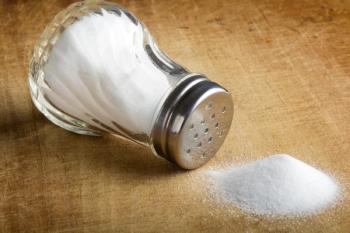
Tackling parental concerns about chemicals in vaccines and the home
We may have grown used to chemicals being a part of everyday life, but some will cause many parents to worry. A presentation at the virtual 2020 American Academy of Pediatrics National Conference & Exhibition offers guidance on how to address these concerns.
As children become mobile and start to explore their world, parents may start to have questions and worry about potential exposures to chemicals around the house. Such concerns can also have an impact on vaccine hesitancy. Aparna Bole, MD, FAAP, associate professor in the department of pediatrics at the Case Western Reserve University School of Medicine in Cleveland, Ohio, offered some guidance on how to discuss such concerns in her presentation at the virtual 2020 American Academy of Pediatrics National Conference & Exhibition entitled “Addressing parents’ concerns about chemicals in products and vaccines.”
Bole acknowledged that the regulation of chemicals in the United States is complicated and scattershot. She then went on to discuss common products that can expose children to chemicals including cleaning products, personal care products, and sunscreens. As a result of the COVID-19 pandemic, many families are likely overusing chemical disinfectants in the home. She recommended that clinicians discuss the difference between cleaning and disinfecting with parents as well as offer some tips for homemade cleaners, such as white vinegar with water, that won’t be as harsh. With many people using more bleach to protect against COVID-19, Bole suggested telling parents that a 1 to 10 dilution is the recommended formula. Common household products such as soaps, nail polish, hair straighteners, and artificial nails contain a number of chemicals including ammonium thioglycolate, formaldehyde, avobenzone, and acrylic polymers, which can lead to skin irritation, foul odor, upper respiratory tract irritation, and other symptoms. Parents may ask questions about zinc oxide and titanium oxide in sunscreens and nanoparticles, but no evidence exists that either are harmful to health.
One of the other major concerns that parents may have with regard to chemicals is via vaccines. Many parents who have expressed vaccine hesitancy have indicated that chemical exposure is one of the main reasons. To combat these worries, Bole recommended that pediatricians become familiar with evidence-based strategies that allow the patient to avoid exposure to chemicals of concern. Building a rapport with parents will make them feel more comfortable to discuss the fraught topic. Ingredients that may be a cause for concern includes ethyl mercury, which is still found in some influenza vaccines, which is readily broken down and excreted, but parents can confuse that with methyl mercury, which accumulates and is toxic, as well as formaldehyde, which is found in small traces in vaccines, much smaller than found in the body and magnitudes less than the amount found in some household products. When parents bring concerns about chemicals in vaccines, Bole recommended that pediatricians address any specific questions about the chemical, caution parents about disinformation that can be found on the internet, and remind parents that there are evidence-based ways to avoid exposure to certain chemicals and avoiding vaccines is not one of those ways.
Newsletter
Access practical, evidence-based guidance to support better care for our youngest patients. Join our email list for the latest clinical updates.








